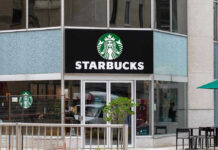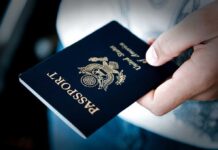
Social media deception hits new lows as a fake luxury influencer exploits restaurant trust, exposing gaping holes in New York’s hospitality safeguards.
Story Snapshot
- A Brooklyn woman posing as a Prada-loving influencer faces multiple arrests for dine-and-dash crimes at New York’s most exclusive restaurants.
- Authorities say she manipulated social media status to gain access and evade payment, targeting venues hungry for online exposure.
- The case spotlights broader concerns about authenticity, fraud, and the unchecked power of influencer culture in the hospitality industry.
- Law enforcement and business owners are now urging stricter verification and reform to protect against similar scams.
Serial Fraud Exposes Weaknesses in Restaurant Vetting
Pei Chung, a 34-year-old Brooklyn resident, became the focus of a police crackdown after repeatedly dining at high-end New York City restaurants and leaving without paying. She carefully curated an online persona, flaunting luxury brands like Prada and presenting herself as a prominent food influencer. Her strategy allowed her to gain access to exclusive venues—such as Peter Luger and Francie—where she allegedly committed at least five separate dine-and-dash incidents between late October and November 2025. Restaurant managers, eager for publicity and social media buzz, appeared particularly vulnerable to the manipulation of influencer claims.
Chung’s repeated offenses raise alarming questions about the current climate in the hospitality industry. The rapid expansion of influencer marketing has created an environment where the lines between authentic promotion and outright deception are increasingly blurred. Many restaurants, especially those in competitive markets like Williamsburg, have become susceptible to pitches from self-styled influencers. The lure of social media exposure and fear of missing out on digital trends often result in lax verification, leaving businesses exposed to scams that erode both their finances and reputations.
Law Enforcement Response and Industry Impact
After a series of arrests—at least five since late October—NYPD and local law enforcement are calling attention to the broader risks posed by fraudulent influencer activity. Police confirm that investigations are ongoing, including the possibility of additional incidents or accomplices. While Chung has not issued a public statement, authorities have urged restaurant owners to rigorously vet influencer credentials and rethink their outreach strategies. The impact has been immediate: many establishments are reviewing policies and reconsidering how they engage with self-identified influencers. The hospitality sector is contending with financial losses, reputational harm, and increased skepticism toward online personalities.
Industry experts warn that this case is a wake-up call. Hospitality consultants and digital culture scholars note that the incident is emblematic of larger vulnerabilities in the influencer economy. Some argue that while the scale of Chung’s alleged fraud is unusual, the underlying risks are systemic. The story has prompted calls for industry-wide reforms, including more formalized agreements, background checks, and a return to common-sense verification instead of blind trust in social media status. If unchecked, such schemes could undermine customer trust and erode traditional business values that prioritize integrity and accountability.
Broader Cultural and Economic Implications
The repercussions of this case extend beyond individual restaurants. As news of the dine-and-dash scheme captures national attention, there is growing public debate over the authenticity and influence of self-proclaimed internet celebrities. While some commentators suggest that this case is an outlier, others point to a troubling pattern of fraud and deception enabled by the unchecked rise of digital personalities. The financial impact on targeted restaurants is clear, but the social effect—damaged trust between businesses and influencers—may be longer lasting. Calls for regulatory oversight and more robust industry standards are gaining momentum as stakeholders seek to prevent similar abuses.
Prada-loving faux food influencer is a serial dine-and-dasher at top NYC eateries: cops https://t.co/ov2QHlHLeg pic.twitter.com/g7uZEcvmoh
— New York Post (@nypost) November 16, 2025
Law enforcement’s vigorous response, coupled with restaurateurs’ demands for reform, signals a shift in how influencer marketing will be handled in the future. The hospitality industry, now on high alert, is expected to implement tighter controls and demand greater transparency from those claiming online clout. For conservatives, the story underscores the risks of prioritizing trend-driven marketing over time-tested principles of responsibility and due diligence. As the investigation continues and businesses adapt, the hope is that accountability and common sense will once again take precedence in America’s restaurants and beyond.
Sources:
Pei Chung, 34 Brooklyn fake food blogger targets Williamsburg high end restaurants
Prada-loving faux food influencer is a serial dine-and-dasher at top NYC eateries: cops
Woman accused of repeated dine and dash at NYC luxury restaurants while promoting a lavish lifestyle




























